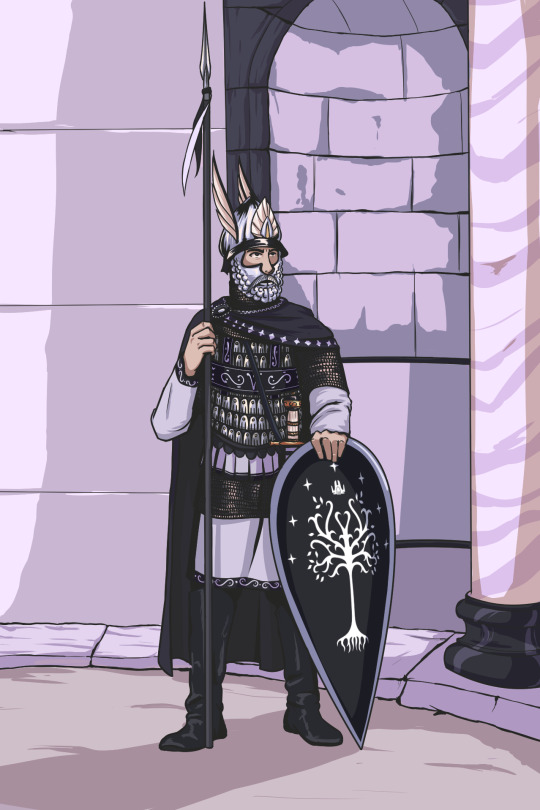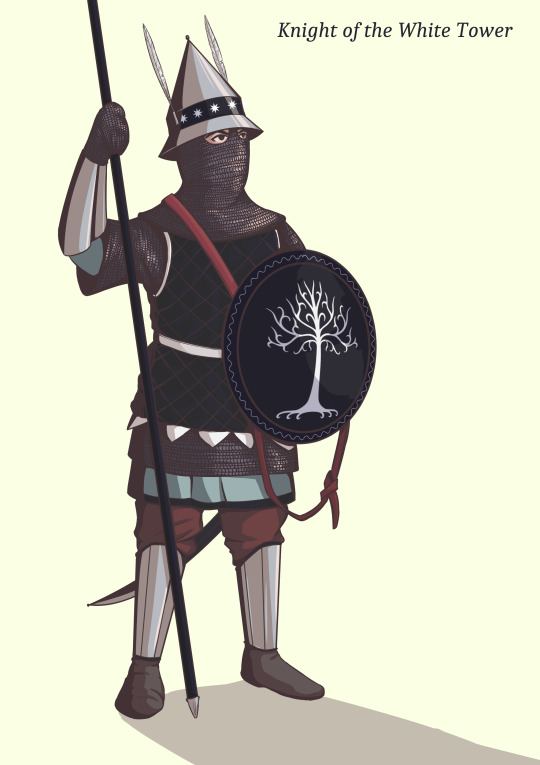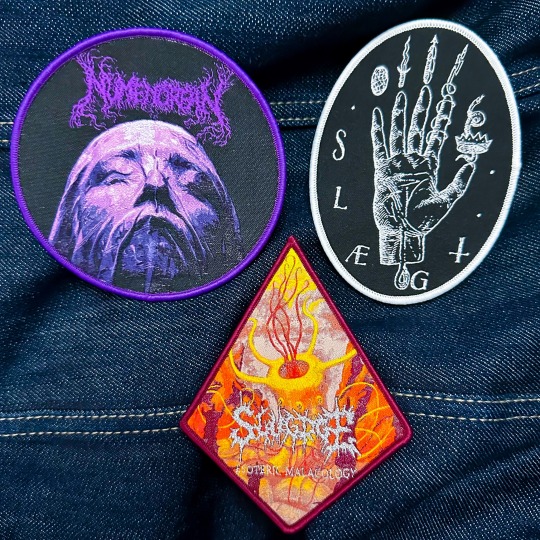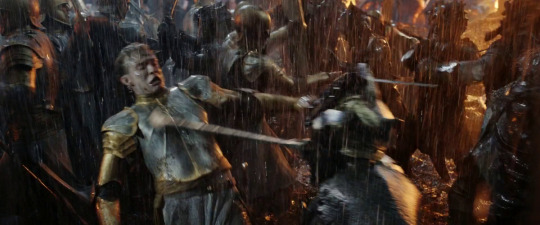#numenorean
Explore tagged Tumblr posts
Text
Boromir the mansplaining Chad
Now I'm no Boromir hater, I often defend him from accusations of being a "bad guy". But he's weirdly the most commonplace in our world kind of man in Tolkien's work. He has a good heart but boy does his attitude reek of entitlement in many places. He lacks the humility to truly listen even when the wisest in Middle Earth are speaking. He seeks to push his will and if he can't reason his way into making people do what he'd like he attempts manipulation by pouting a bit "if that hasn't earned some payment then I'll go back to Minas Tirith alone." The whole trip he pushes for the ring to go to Minas Tirith no matter how much others caution him. He misses the cues to drop the topic and keeps trying to force his will upon the company. It smacks of a man trying to convince a woman to go out with him and he just ignores the cringes, the polite answers, the her removing herself from proximity, the gentle nos and when he's given a resounding no he loses his temper and gets borderline violent.
I don't think it's any coincidence that the real time seduction of the Ring on a member of the Race of Man is happening with a man who is in every way so commonplace to the men of reality. Tolkien had served in war, he'd seen the varieties of masculinity in all their shapes sizes and personalities. Who can say how many "noble fighting men" like Boromir he'd seen lose their lives some plausibly due to hubris as much as enemy missiles. Boromir is a good man but more accurately he is the perfect representation of a privileged man of our times trying to perform masculinity versus the Aragorns and Faramirs who possess the quiet confidence that they don't require thanks, submission, repayment, or accolades. The "blood of the men of Westernesse" feels like Tolkien's code for "less likely to be an entitled dick" when it comes to the trilogy.
But Boromir in spite of his flaws is still a good man, he's just a mega Chad and that needs to be acknowledged too.
#tolkien#jrr tolkien#lord of the rings#lotr#gandalf#council of elrond#elrond#boromir#captains of gondor#captain of gondor#gondor#aragorn#men of Westernesse#numenor#blood of numenor#numenorean#denethor#faramir
55 notes
·
View notes
Text

Dunedain (Ranger)
by John Davis
15 notes
·
View notes
Text

was thinking about post-apocalyptic (post-akallabeth) numenoreans of the group who didn't sail either to valinor or beleriand
#silm#silmarillion#akallabeth#numenor#numenoreans#numenorean#just. the numenoreans who chose to go down with the ship#there was ar pharazon trying to reach immortality/reject the gift of men#and then on the other hand elendil and his faithful#and then there's tar miriel as essentially the third king of a broken nation dying atop the meneltarma#obviously they probably died soon after from starvation given that the entirety of their food production was underwate#but for a brief period of time its fully plausible that there were sword-and-gun wielding post apocalyptic movie style numenoreans#roaming around whatever mountaintops didnt fully sink
26 notes
·
View notes
Text



My first Tumblr post!
Let's start here by talking about a concept I've been kind of in love since like 2019-ish, and it's representing the Gondorians from Lord of the Rings as Byzantines, be it regarding clothing or equipment. In general, I like to combine gear from various periods of byzantine military, but mainly from the Macedonians and Komnenian dynasties. I also like to add some non-byzantine pieces, if it fits, like the mytrhil helmet of the Citadel Guard, which is inspired in a certain type of Hellenistic helmet.
So, to sumarize, what I'm sharing here are:
1- A Citadel Guard of Minas Tirith
2- Two heavy infantrymen from the city or one of the big fiefdoms of Gondor
3- A knight of Minas Tirith, clad like a cataphract
#gondor#lotr#tolkien#jrrt#the silmarillion#lord of the rings#tolkienverse#city#white tower#knight#armor#history#byzantium#numenor#numenorean#sauron#galadriel
61 notes
·
View notes
Text







Reign 2013-17/01-01
Toby Finn Regbo as Francis Valois
#francis de valois#toby regbo#season1#reign#face expression#b&w#love is irrilevant to people like us#mary stuart#adelaide kane#frary#mary×francis#OTP#he loves her#engagement#fated#love and duty#france and scotland#dauphin#queen of scots#pilot episode#01×01#please stay#stay#numenorean#Spotify
10 notes
·
View notes
Text
Wait so only Boromir is a normal human in the Fellowship if Aragorn is a long living Numenorean
22 notes
·
View notes
Text

New Patch Day: Numenorean, Slugdge, and Slaegt. Check out @overthrown.patches for some outstanding official patches.
4 notes
·
View notes
Text
Weapons and Armor in the Rings of Power
Rings of Power is not a good series in multiple ways, but for this blog, only weapons and armor are really relevant. So that is what will be discussed here. I will get one repeated issue out of the way: nobody is wearing any sort of hand protection. While usage of gauntlets and similar protection for hands was hardly universal, it was fairly widespread by the 15th century and wide utilization of…

View On WordPress
#Ar-Zimraphel#armor#dwarven#dwarves#elven#elves#Galadriel#Lord of the Rings#Numenor#Numenorean#Rings of Power#Tar-Miriel#weapons
1 note
·
View note
Text
youtube
youtube
0 notes
Text
Please stay with me one more night.
1 note
·
View note
Text
Looking at the parts on Númenor in Unfinished Tales (and the LOTR appendix chronology) made me notice something Tolkien does with the history of Númenor that is very thoughtful, very important, and often neglected by other fantasy authors: he distinguishes between fighting on the right side and being the good guys, and he even delves into how those two things can work against each other.
Three times in particular, the Númenoreans help to defend Middle-Earth against Sauron. In Aldarion’s time, in the 800s, Aldarion spends much time establishing and rebuilding a port/haven on the coast of southern Eriador, to guard against invasion of the north through what will later be the Gap of Rohan. In 1700, Tar-Minastir sends a large force to drive back Sauron and rescue Gil-galad and Elrond and their people after the forging of the Rings and the destruction of Eregion. And, of course, near the end of the Second Age Ar-Pharazon sends the vast fleet and army that takes Sauron captive.
And each of these times are associated with successive stages in Númenor’s moral decline.
Aldarion is the first warning sign. His father, Tar-Meneldur, a wise man, discourages his voyaging, accurately fearing that it “sows the seeds of recklessness and the desire of other lands to hold”. Aldarion likewise marks the beginning of Númenoreans regarding nature as something to be valued for its use rather than for itself: trees as timber, not as forests. This is also when the Númenoreans begin to log Eriador - their logging will eventually be so extensive that, whereas virtually the whole area from the coast to the Misty Mountains to the Gap of Rohan was forested at the start of the Second Age, by the time of LOTR only the tiny fragment of the Old Forest remains. It’s not for nothing that the trees there are hostile to Men (and Hobbits). (This may not have been happening in the same way in Aldarion’s time - in Númenor he spends great efforts on replanting trees, nothwithstanding the ecological distinction between ‘tree plantations’ and ‘forests’, and he may have done the same in Middle-earth - but it’s still the starting point.)
And he does work extensively in Middle-earth to build defences against Sauron (or ‘the shadow in the east’; they don’t know it’s Sauron yet) and is described as “the friend and counsellor of Gil-Galad.” Yet the very growth in power, pragmatism, and expansionism that is involved in doing this is the start of Númenor’s downward path.
Next, we have Tar-Minastir, who drives back Sauron from Eregion during the War of the Elves and Sauron, following the forging of the Rings of Power, when Gil-galad, Elrond, and the Elves of Eregion are almost defeated. Unfinished Tales says “he loved the Eldar but envied them” and built a high tower to gaze westwards towards Valinor. And it is in the immediate aftermath of his rule that Númenor enters its phase of exploitative imperialism: his son Tar-Ciryatan is “a mighty king, but greedy of wealth; he built a great fleet of royal ships, amd his servants brought back great store of metal and gems, and oppressed the men of Middle-earth.” The next king, Tar-Atanamir, likewise “exacted heavy tribute from the men of the coasts of Middle-earth”, and was the first to be openly hostile to the Valar and the Eldar. The Silmarillion describes Ciryatan and Atanamir as “proud men, eager for wealth” who “laid the men of Middle-earth under tribute, taking now rather than giving”.
(As an aside: this is a period where I’m particularly curious about what Gil-galad and Elrond were thinking, and the decisions they had to make. The Númenoreans have just recently decisively rescued them, and it may not be going too far to say the Elves of Eregion and Lindon are military dependent on Númenor. And yet the Númenoreans are now mistreating and oppressing the men of Middle-earth. How to balance military/political pragmatism and ethics? Are the Númenoreans friends or not? Should they be trying to do anything to stop Númenorean empire? Can they do anything? Does benefitting from Númenorean military might while not doing anything make them complicit? Do they try to talk to the Númenoreans? And for Elrond in particular, on top of the moral vs pragmatic concerns, there’s the knowledge that it’s his brother’s descendents and successors who are doing this - in a sense, the only family he has left.)
And lastly, of course, we have Ar-Pharazon, who defeats Sauron but without being any better than Sauron, and who is corrupted by him, wreaks devastation on the men of Middle-earth and on his political opponents at home, and leads Númenor to its destruction.
It feels like this reinforces the themes of The Lord of the Rings, that victory over evil is not one by seeking to overpower it, but by renunciation of power. The downfall of Númenor highlights this by contrast by showing the corrupting force of accumulated imperial power, even when used against a foe that is genuinely evil.
#tolkien#the silmarillion#numenor#unfinished tales#numenoreans#gil galad#elrond#aldarion and erendis
436 notes
·
View notes
Text


Reign 2013-2017
Mary and Francis
#mary stuart#francis de valois#adelaide kane#toby regbo#frary#mary×francis#reign#stay#frary dance#OTP#face expression#love#eyes#multichrome#numenorean#spotify
5 notes
·
View notes
Text


“...and its jewels and its webs and its things painted and carven…”
For @tolkienekphrasisweek day 1, Ceramics and Glasswork. I always love the thought of items washed up onshore in Middle-earth when Númenor sinks.
#numenor#akallabeth#the silmarillion#silmarillion#my art#tolkienekphrasisweek#akallabêth#númenor#second age#behold my tree design glass goblet...my PRIDE and JOY#numenorean seaglass and pebbles#pro tip you can look at these bigger if you want
234 notes
·
View notes
Text

Welcome to the Numenor Week! Event created for fans of the tragic and beautiful story of the Land of the Gift, from its birth to its downfall.
The event will run from May 26 to June 1, and will accept all the type of fanworks (fanarts, fanfictions, edits, gifsets, remix, etc etc). please remember to tag @numenorweek and to add #numenorweek and #numenorweek2025 in the first 10 tags of your post. NSFW contents are welcomed, but mind to tag them or to put them under a cut. It's ok to submit Rings of Power contents because the show follows the events of the Akallabeth, but only if said content is about the Numenorean characters.
Numenor Week Prompts (those are just suggestions, you can follow them or either discard them completely)
Day 1: Elros Tar-Minyatur | The Line of Elros || Characters: Elros, Elwing, Eärendil, Vardamir Nólimon, Tindómiel, Manwendil, Atanalcar || Prompts: The Choice of the Peredhili - Mortality & Immortality - Rites at the Meneltarma - Kingship - The Legacy of Eärendil
Day 2: The Mariner's Wife | Aldarion and Erendis || Characters: Tar-Aldarion, Erendis, Tar-Ancalimë, Hallacar, Tar-Meneldur, Almarian, Ailinel & Almiel || Prompts: Costumes and traditions of the Numenoreans, the Guild of the Venturers, laws of succession, expansion of the Numenoreans in Middle Earth, Uinen and the Uinendili
Day 3: Daughters of the Great | The Ruling Queens of Numenor || Characters: Tar-Ancalimë, Tar-Telperiën, Tar-Vanimeldë, Tar-Míriel, Silmariën || Prompts: the role of women in Númenor, usurpation, Queenship, the known and the forgotten women of the line of Elros
Day 4: The Faithful | Lords of Andunie || Characters: Inzilbeth, Amandil, Elendil, Tar-Palantir, Eärendur, Lindórië || Prompts: Secrecy, worship of the Valar, the White Tree, Pelargir, Strife between kin
Day 5: The King's Men | The Ban of the Valar || Characters: Tar- Atanamir the Great, Ar-Adûnakhôr, Ar-Gimilzôr, Gimilkhâd, the Witch King of Angmar || Prompts: Cult of the Dead, Fear of the unknown, Umbar, Pride, Ban of the Quenya, Nazgûl
Day 6: Akallabeth | The Downfall || Characters: Tar-Míriel, Ar-Pharazôn, Sauron, Amandil, Elendil, Elentir, Sauron/Tar-Mairon. || Prompts: Hybris, the cutting of the White Tree, the imprisonment of Sauron, Worship of Melkor, War against the Valar
Day 7: The Realms in Exile | The Line of Isildur and Anarion ||Characters: Elendil, Isildur, Anarion, Valandil, Meneldil, Ohtar ||Prompts: Exile, Gondor and Arnor, the Last Alliance of Elves and Men, Estel
If you have any questions, feel free to send an ask in my askbox!
-- banner artwork by Felix Sotomayor
#numenorweek#numenorweek2025#lord of the rings#silmarillion#the silmarillion#jrr tolkien#tolkien#middle earth#numenor#numenoreans#tar miriel#tar mairon#tar míriel#ar pharazon#sauron
80 notes
·
View notes